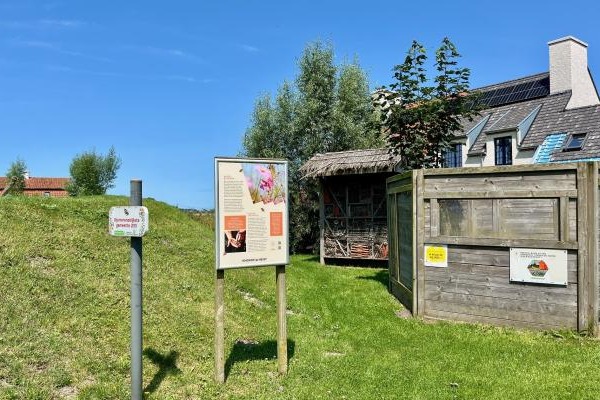

The Solutions Explorer lets you create alerts that match your needs. You can create several alerts and you will receive a notification each time a new Solar Impulse Efficient Solutions is labelled and matches your filters.
Your Search Alerts will show up here.
Sign in to create alerts for your filters and search terms.
Sign inDon't have an account?
Sign upApril 1, 2014
Knokke-Heist Town
Knokke-Heist

Knokke-Heist, a prominent Belgian coastal town, has partnered with BeeOdiversity for 10 years to preserve the environment while balancing tourism, agriculture, and local economies. The BeeOmonitoring project uses bees as natural drones to collect pollen, serving as bioindicators to map biodiversity and monitor pollution levels across five strategic areas. This data includes agricultural and industrial pollutants and assesses biodiversity, identifying risks like invasive species and the loss of plant diversity. With expert recommendations, the municipality takes targeted action and engages local communities in workshops to adopt better environmental practices.
The BeeOmonitoring project in Knokke-Heist addressed heavy metal pollution and excessive pesticide use, leading to reduced pollution, 80% less pesticide use, and increased biodiversity. BeeOdiversity supported farmers with sustainable practices, while 20 flower meadows and educational routes boosted public awareness. The collaboration enhanced the region's appeal to residents and tourists.
Although pollution and lack of biodiversity constitute operational, reputational, environmental and financial risks for many sectors it remains difficult for many actors to take improvement actions amongst others due to a lack of metrics. The BeeOmonitoring combines nature (bees acting as drones to collect billions of environmental samples on large surfaces) and technology (software processing the data). Through the analysis of the samples, BeeOdiversity can identify, find the origin and assess the level of pollutants (heavy metals, 523 pesticides, nitrates, PAH, dioxins, etc.) and assess plant diversity level and quality. The BeeOmonitoring enables to (i) monitor industrial and agricultural pollution, (ii) assess the quality/diversity of plants, (iii) take targeted improvement decisions and (iv) implement adapted actions to enhance biodiversity. No other method can monitor so many pollutants and provide biodiversity metrics (on-site) as efficiently.
Share
The information set out above, is solely for the purposes of information and the Solar Impulse Foundation does not provide any guarantee as to its authenticity, completeness or accuracy. This information does not constitute investment advice or a recommendation to buy into, transact or to enter into any agreement with any of the parties or persons mentioned above. Potential investors or interested parties are solely responsible for their investment or business decisions and for performing any due diligence required by the circumstances. The innovator has asserted ownership of the intellectual property rights for images, videos, and content showcased above, affirming full and unrestricted usage rights, and has provided explicit permission for the Solar Impulse Foundation to publish such information designated as "public" in the application form.